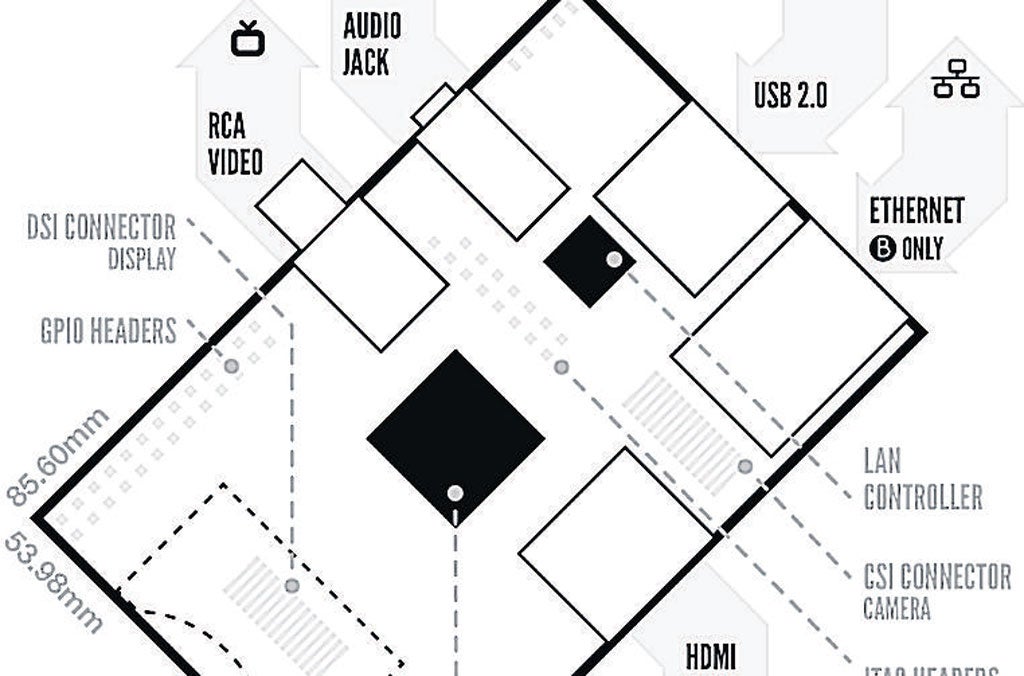It's not quite the season for raspberry pie but a small technological charity hopes it might be the time for Raspberry Pi.
The Raspberry Pi is a credit card-sized computer that will cost either $25 or $35, for the more powerful model (£16 or £22). It can be plugged into a TV and keyboard to make a functioning computer with sound, HD video and office programmes. In short, much of what most people use PCs for, but in a pocket size that can easily be adapted and added to existing technologies, particularly in poorer parts of the world, where TVs may be available, but a computing infrastructure is still in its infancy.
The Raspberry Pi Foundation's site explains: "We're trying to build the cheapest possible computer that provides a certain basic level of functionality."
The idea came in 2006 from Eben Upton, who was working in admissions at Cambridge University (a supporter of the scheme) and noticed a reduction in programming skills of applicants for Computer Science.
One of the major hopes for the cheap, tiny computer is that it will give young wannabe programmers here, and in other countries, an affordable chance to experiment with programming. The charity says it's also received interest from hospitals, museums and parents of disabled children.
On New Year's Eve, the Raspberry Pi team announced that they'd be auctioning 10 early versions of the devices on eBay – giving collectors the chance to grab a potential piece of computing history... or just for eager programmers to get stuck in.
The space jam – why easy parking is eating Los Angeles
Parking spaces! Two words so unglamorous that even urban policy wonks struggle to be excited by them.
So we were surprised, but intrigued, to see that this week that LA Magazine, the arbiter of cool in a famously cool city, devoted almost 6,000 words to investigating the, er, city's parking spaces.
In it, writer Dave Gardetta explores the history of the city's parking and planning policies and looks at how they've helped shape the city – mainly for the worse. (Los Angeles's car-friendliness has been a regular feature of Ideas Factories passim.)
And yes, it's 6,000 words about parking, but the figures cited are maddening – Gardetta explains that a skyscraper of a million square feet in New York may be required to have 100 parking spaces –an LA tower is told to have 1,300 spaces – perpetuating the city's reputation as a car-dominated slab of pavement.
Or as Gardetta says: "The maxim is wrong: Los Angeles wasn't built around the car. It was built around the parking lot."
Read in full: ind.pn/lapark
The total recall car seat
If you share a car you'll no doubt be aware of the annoyance of someone fiddling with your seat position and mirrors if they drive it.
Well, now that set-up could be key to protecting your car from criminals.
The excellent ideas site PSFK picked up on research from Tokyo's Advanced Institute of Industrial Technology, who've developed car seats that can recognise the exact pressure that the legitimate driver would put on a seat. So a thief sat in the car wouldn't be able to start the engine. Experiments have so far proved 98 per cent effective and, report PSFK, a commercial launch could come in around three years, which may put some drivers off going to all-you-can-eat buffets for lunch – lest they get stranded.
More: ind.pn/carpres
Mesmerising map magic at 45 degrees
When I was young I used to spend a lot (some might say, odd) amount of time staring at The Times Atlas of the World. The advent of Google Maps has made geographical wonderment a near daily fix, ie when reading a feature about a place I'm unfamiliar with I tend to distract myself midway through, looking for the places mentioned. So any new addition that makes trawling the digital landscape on Gmaps more fun is bound to get an industrial-sized thumbs-up from The Ideas Factory.
Last March, developers added the ability to view a limited amount of cities at a 45° angle in the satellite view, rather than the normal top-down look which gives users an excellent idea of the topography of places but make it difficult to see what the landscape looks like (ie, the scale of skyscrapers is hard to grasp – even in Streetview mode).
In December, the Gmaps team added more cities to the 45° view, including the always captivating Detroit. This gave a remarkable view of the city and cast its much reported urban struggles in a completely new view. Adding stunning geographical context to structures like the beautiful, abandoned Michigan Central Station (pictured above).
So far there's only one British city available to view at 45°, Leeds – but once you've scrolled over Millennium Square and Elland Road, other cities you can explore include Barcelona, Venice, Dortmund, Durban, Houston and St Louis. So go and get lost.
Send us your factory fuel
Have a story for the Ideas Factory? Email w.dean@independent.co.uk or tweet @willydean
Subscribe to Independent Premium to bookmark this article
Want to bookmark your favourite articles and stories to read or reference later? Start your Independent Premium subscription today.


Join our commenting forum
Join thought-provoking conversations, follow other Independent readers and see their replies